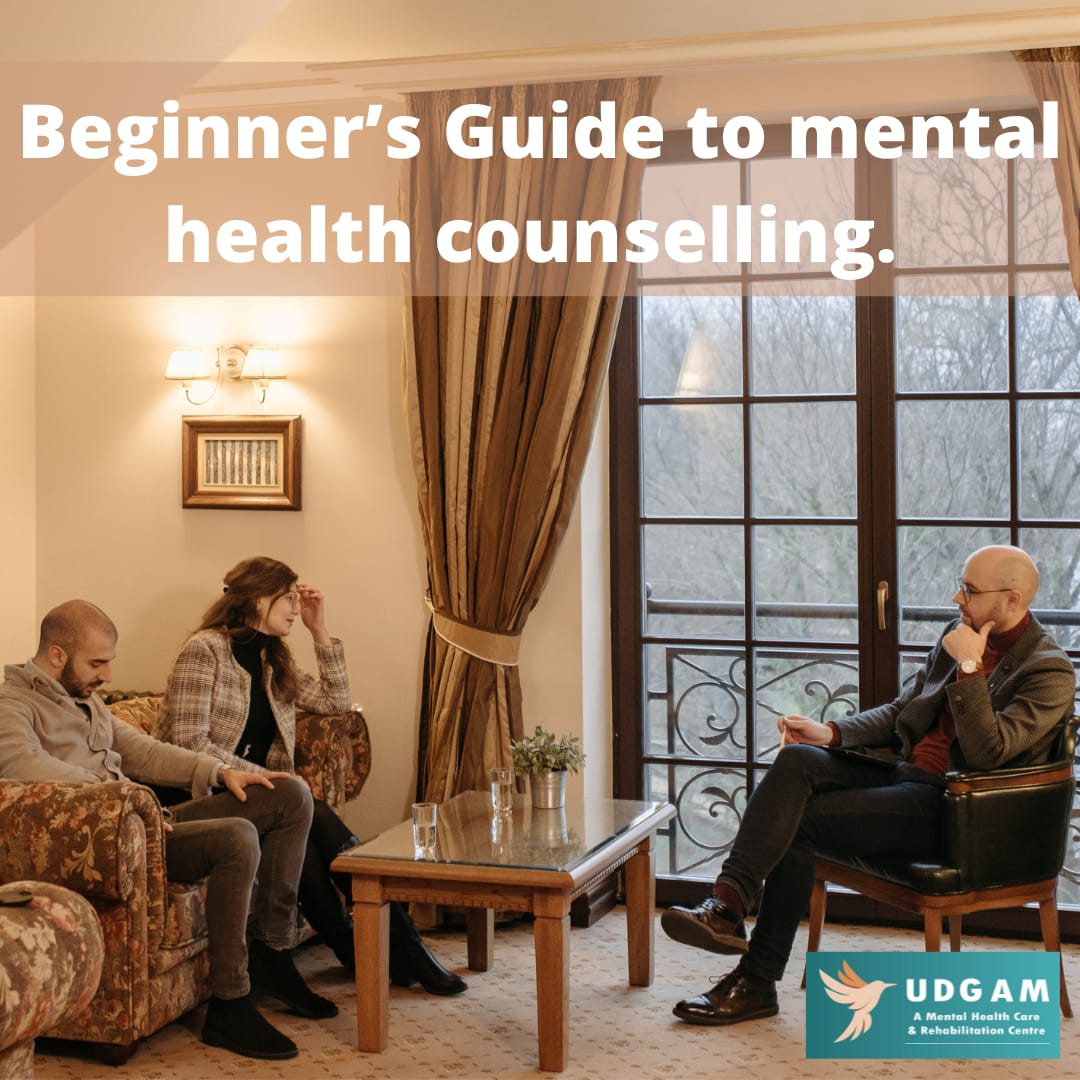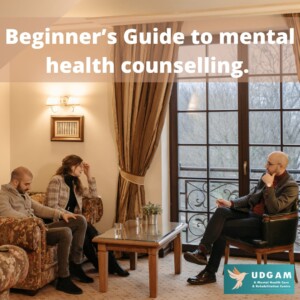Beginner’s Guide to Mental Health Counselling
A lot of the time, we encounter people who are confused about what to expect from a counsellor. They would log onto some unverified source to understand their problems. Well, this article aims to give you 10 logical and realistic steps you should know before you go for mental health counselling.
So when you decide to go for therapy, and you are a patient or a parent sitting in the waiting room, these tips are for you:
- Finding a Professional Suited to Your Needs:
When talking about mental health care, where diagnosis and treatment are dependent on semi-intrusive hard work and not just technology and knowledge. It is understandable that we find it hard to trust professionals. A therapist that you can trust and feel heard is the most important component of a counselling relationship.
Therefore, it would be wise to meet with a few options, if needed before you are comfortable. Don’t be discouraged if it does not work on your first try. Remember to ask for their qualifications and area of expertise as well.
- Take an Introductory Session:
It is good to get comfortable with your therapist before you start thinking about going through treatment. A lot of myths/doubts that we have need to be resolved before we can start opening up more. So take a short session before you discuss treatment.
- Make Informed Decisions:
Always remember to ask your therapist/psychiatrist, anything that comes to your mind. They are there to help you. Through these conversations, the patient and therapist both get a better understanding of what the situation is and how to best acknowledge it.
Metal health professionals are obligated to brief you before any decisions are made. So don’t feel as if you don’t have any control over the situation. And remember to make your decisions with all the facts in front of you.
- Prepare the Child, for the Routine:
The child might suffer more from the sudden change and intrusive routine. When we disrupt that routine, we make them uncomfortable. But having tiny discussions over the reasons for going to therapy, and open conversation on individual thoughts is a key to making your child comfortable with the decision. People often skip this step with younger children, who don’t always understand the implication of going to therapy. All we feed in their heads by not talking about it, is that this new situation is something to be upset about. Children often mimic their parent’s emotions, especially when they are younger because it is hard for them to have all the facts. And as such, they look up to those who seem to understand it all, which happens to be their caregivers.
For slightly older children who have more agency in their decision-making, a good amount of preparation will still be required, rather they would need the active participation of the caregiver to set it up. Older children have a lot of unique analyses of the situation, which should be addressed by both parents and professionals.
- Adhere to Treatment:
Treatment doesn’t show instant results, often medications take up to 2 weeks to work. So, in the case of therapy which has a huge number of variables affecting it, it would take some time to show results.
When you enter a therapy session, do remember that it is designed based on your situation, preparedness, insight and adherence. A lot of the control is in your hands.
You can even adjust the plan if it is not suited to you.
Adhering to the routine of the treatment plan is very important, through this, you learn how to manage your symptoms. If you take gaps between their treatment programs, constantly change doctors or stop way too early, it can be damaging.
- Encourage Child to Continue:
Children are bound to get bored or stressed with the treatment. They may get shy or angry. Many children are bullied for being different as well. This is why it is important to hear their worries and to encourage them to go through the whole process to help them come out stronger.
It is important to remember that taking the step of being in therapy and seeking treatment, is being brave and doing your best for yourself.
- Encourage Yourself to Continue:
As a caregiver or a parent, it is hard to live with the pressure of doing the right thing. Saying the right words or making time from your hectic life for therapy. When you feel stressed, don’t shy away, and don’t think of yourself as a bad caregiver, you are human and are prone to frustration. What will be helpful in these times would be acknowledging and validating your emotions, by taking out time for self-care and appreciation of your hard work.
- Prevent Caregiver Burnout:
Adding onto the above point, ensure that stress is under control. It would be difficult to recognize the caregiver's stress. But it is important and useful for both the caregiver and the patient to acknowledge and process the emotions.
- Seek Assistance:
In case your stress gets too much to handle, seek assistance immediately. As a parent of a child going through therapy, there is a pressure of doing the right thing on you all the time. And without proper clarity, without resources to handle them, and without determination, we will all crumble. So seek help when you need it. It can come in the form of a therapist, support groups, friends, or family. Know that you cannot do the right thing 100% of the time, and it is okay to fail. But remember to keep trying.
- Do Regular Check-in:
Acknowledge that having a regular conversation with the therapist, teachers, and family is a routine to be followed. Regular check-in can help you gain a clear picture of your child’s progress. You would be better equipped to assist when needed. And understand more about your child's condition
In our culture, we are pressured to behave a certain way. Yet no rule is good if it stops you from getting the help you need. The time to take mental health seriously is now.
We appreciate your interest in this article, should you be interested in reading more on mental health, stay tuned to our website. Contact us, for a session or more information from our team.
[ratings]
Anuja Sathe
Counselling Psychologist




